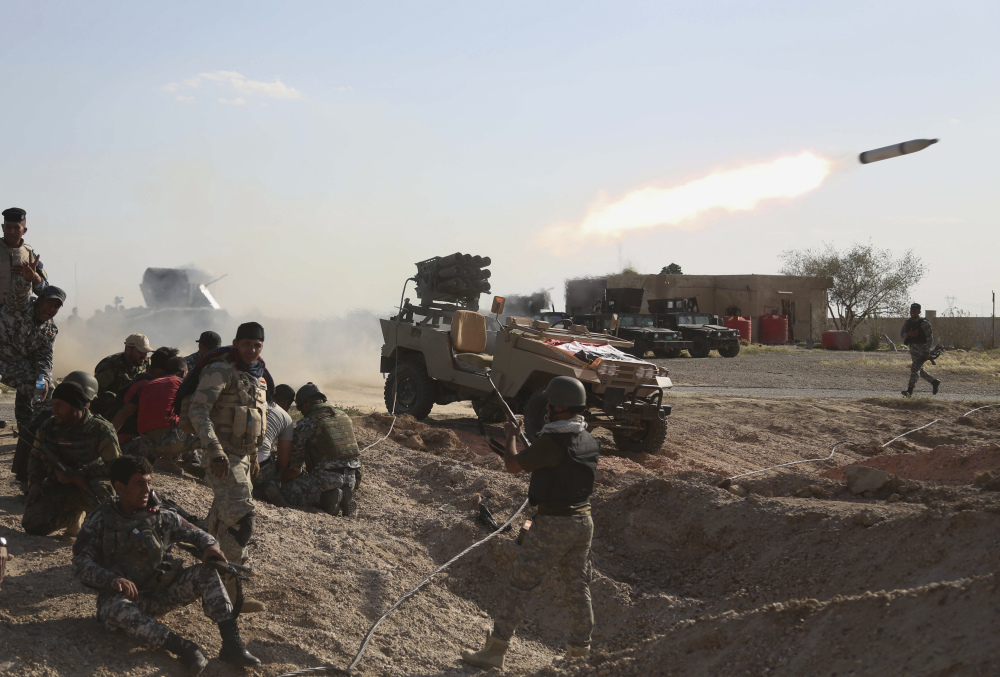BAGHDAD — Iraqi militia forces that have led the fight against Islamic State militants in Tikrit balked at U.S. intervention Thursday, saying that they would stop thousands of fighters under their influence from joining an offensive on the city.
Though the militia leaders said they would remain in their positions around Tikrit, their refusal to continue fighting raises the question as to whether regular Iraqi troops can continue the battle on their own.
The largely Iranian-backed paramilitary groups reacted with fury Thursday after coalition planes launched 17 airstrikes on Tikrit during a first wave of attacks. One Shiite militia, Kitaeb Hezbollah, which is designated by the United States as a terrorist organization, said it would go as far as shooting down any plane belonging to the U.S.-led coalition in the area.
Washington has pushed for Shiite militias to leave the battlefield, even as it is drawn into a fight against their enemy, the Islamic State militants. But the Shiite militias, many of which are hostile to the United States, play a dominant role among the Iraqi forces. Around Tikrit, they outnumber the regular Iraqi government troops by more than six to one.
As the United States joins the conflict, the ire of the militias could have wide repercussions in a country where lines between them and Iraqi security forces have become increasingly blurred, and Iranian-backed groups have grown in power. The discord has the potential to undermine Prime Minister Haider al-Abadi’s authority , while drastically cutting the number of pro-government forces at Tikrit from as many as 30,000 to around 4,000.
Thousands of ground troops involved in the Tikrit offensive belong to what are known as “popular mobilization units” –loose affiliations of Shiite fighters and militiamen that formed after a call to arms from Iraq’s leading Shiite cleric. They are largely under the control of militia leaders despite government claims otherwise.
Even in the face of U.S. pressure to reduce militia influence, Iraqi officials had indicated that they planned to use at least part of the popular mobilizations in a new offensive for Tikrit, with Abadi mentioning them as he announced the second push on Wednesday night. But the units said they would refuse to participate, as militia leaders attempted to reassert their influence in the wake of the U.S. strikes.
Send questions/comments to the editors.



Success. Please wait for the page to reload. If the page does not reload within 5 seconds, please refresh the page.
Enter your email and password to access comments.
Hi, to comment on stories you must . This profile is in addition to your subscription and website login.
Already have a commenting profile? .
Invalid username/password.
Please check your email to confirm and complete your registration.
Only subscribers are eligible to post comments. Please subscribe or login first for digital access. Here’s why.
Use the form below to reset your password. When you've submitted your account email, we will send an email with a reset code.